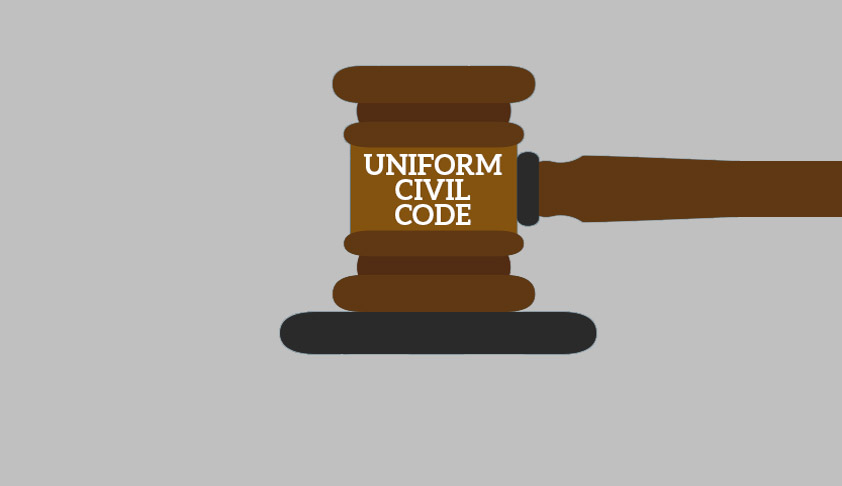This article is written by Anindita Deb, from Symbiosis Law School, Noida. This article seeks to discuss the Personal Laws (Amendment) Act, 2019 and all the subsidiary Personal Law Acts that have been amended under this Amendment Act.
Table of Contents
Introduction
On 21st February 2019, the President of India gave his assent to the Personal Laws (Amendment) Bill, 2018 which consequently became the Personal Laws (Amendment) Act, 2019. The Act aims to exclude leprosy as a ground for divorce for married couples from all religions across the country in order to eradicate the prejudicial treatment experienced by the patients of this disease.
Leprosy is one of the most serious diseases that attack individuals across India. The people who suffer from this disease have to suffer in many aspects, such as loss of self-esteem due to being treated as social outcasts, loss of jobs and long-term effects such as anxiety and emotional turmoil. The patients of this disease also end up committing suicide in various instances. The patients who recover from the disease still face social and psychological problems because the stigma related to it does not go away from the conscience of the people around them.
One of the most essential aspects of social-psychological disorders is that they damage marital relationships. In many cases, if a husband or wife develops leprosy after marriage, the one affected by the disease feels inferior and avoids socializing because the person who is physically healthy treats the person who has leprosy as unequal, which leads to divorce or the end of the marriage.
Object and purpose of this Amendment Act
The statement of objects and reasons in the Bill stated that the patients of leprosy were isolated by society due to the stigma surrounding the disease and the misunderstanding that it cannot be cured. However, modern advancements in medicines have made it possible to completely cure leprosy and medicate patients with the help of multidrug medicines.
While there has been a cure for the ailment since the 20th century, discriminatory laws that cause social boycotts of those who suffer from it have persisted. The British introduced the Leper’s Act in 1898, which isolated and segregated people affected, but it was repealed by state legislatures on their own and based on the recommendation by the Ministry of Law and Justice. This Act, which was substantially in violation of the fundamental right to equality, regulated discrimination against the affected by separating leprosy patients from the general community. The Supreme Court, in the case of Pankaj Sinha v. Union of India And Ors. (2018), also asked the Central and state governments, to take the required steps for leprosy-affected people to be rehabilitated and integrated into society, including repealing rules that viewed leprosy as a stigmatic disability. As a result of the repeal of the Leper’s Act and the removal of leprosy as a ground for divorce, the Indian legislature has taken a step towards eradicating the stigma associated with the disease.
Leprosy as a ground for divorce – why was it valid earlier
Prior to medical advancements, leprosy was not only seen as a physical ailment but it led to the social exclusion of the patients. This was solely because it was perceived to be an incurable disease and it put the spouse and other family members of the patient at the risk of contracting the disease. Hence, in order to protect oneself from contracting the disease and to avoid being neglected by society, leprosy was considered as a valid ground for divorce. However, the ailment can now be cured, thanks to medical evolution, and it can be completely medicated in some cases. Hence, it is no longer valid to maintain leprosy as a ground for divorce.
Acts amended under this Amendment Act
The passing of the Act has facilitated amendments in five of the marriage associated legislations, namely, the Divorce Act, 1869, the Dissolution of Muslim Marriage Act, 1939, the Special Marriage Act, 1954, the Hindu Marriage Act, 1955, and the Hindu Adoptions and Maintenance Act, 1956.
The Divorce Act,1869
Section 10 of the Divorce Act, 1869 provides the grounds on which a marriage can be dissolved. Clause (1) of this Section provided that if a marriage was solemnized before or after the commencement of the Indian Divorce (Amendment) Act, 2001, and a petition is presented by either the husband or wife to the District Court for dissolution of marriage, the marriage may be dissolved on the ground that the respondent in accordance with sub-clause (iv) has been suffering from a virulent and incurable form of leprosy, for a period of not less than two years immediately preceding the presentation of the petition to the district court.
With the enforcement of this new Act, Section 10 has now been amended and leprosy is no more grounds for divorce under the Divorce Act, 1869.
Dissolution of Muslim Marriage Act, 1939
Section 2 of the Dissolution of Muslim Marriage Act provides grounds for a decree for the dissolution of a marriage. A woman married under Muslim law has the right to obtain a judgement for the dissolution of her marriage on any of the grounds listed in the Section. Clause (vi) provided that if the husband has been insane for two years or is suffering from leprosy, a severe venereal disease, the lady may file a petition for the dissolution of the marriage based on this ground.
After the implementation of the Personal Laws (Amendment) Act, 2019, Clause (iv) of Section 2 of the Dissolution of Muslim Marriage Act, 1939 has now been omitted.
The Special Marriage Act, 1954
The grounds for divorce have been provided under Section 27 of the Special Marriage Act, 1954. Before the amendment, clause (1) of this Section provided that a husband or wife may present a petition for divorce to the district court under sub-clause (g) on the ground that the respondent has been suffering from leprosy, which was not contracted by the respondent from the petitioner.
Similar to the above-mentioned facts, the Personal Laws (Amendment) Act, 2019 has now called for the omission of this sub-clause.
The Hindu Marriage Act, 1955
Section 13 of the Hindu Marriage Act provides grounds for divorce. Subsection (1) provides for grounds of divorce that both husband and wife can seek. One such ground is that the other party has been suffering from a virulent and incurable form of leprosy; clause (iv) provided for this ground of divorce.
The Amendment Act has now facilitated the omission of this clause.
The Hindu Adoptions and Maintenance Act, 1956
Section 18 of the Hindu Adoptions and Maintenance Act, 1956 provides for the maintenance of the wife.
Prior to the passing of the Amendment Act, clause (c) of sub-section 2 of Section 18 provided that a wife is entitled to live separately from her husband and still claim maintenance if the husband is suffering from a virulent form of leprosy.
The Personal Laws (Amendment) Act, 2019 has now called for the omission of this particular clause.
Consequences of this Amendment Act
There is a lot of stigma in Indian society surrounding leprosy as a disease. Although medical advancements have introduced a cure for the ailment and it is no more a major threat to people around the patient, the people suffering from this disease are still outcasted from society and face discrimination in every facet of their lives.
The passing of this Amendment Act eliminating leprosy as a ground for divorce has definitely proved to be an excellent step on the part of the legislature, and it brings us one step closer to raising awareness among the crowds that leprosy is no longer a threat, while also helping the patients suffering from this disease live a more dignified life. However, we still have a long way to go.
There are still several statutes that discriminate against patients of leprosy, discriminating against them, barring them from employment in certain institutions, and denying them access to public amenities.
A leprosy patient is prohibited from voting in civic elections under the Orissa Municipal Corporation Act, 2003. Similarly, the Rajasthan Panchayati Act of 1994 forbids leprosy sufferers from participating in elections for the position of panch.
Conclusion
The Personal Laws Amendment Act, 2019 is a remarkable reform introduced by the Parliament in order to eliminate the decades-old stigma connected with people who have leprosy. The Act has, to a large extent, broken the prejudice that had been perpetrated by society, since the prevailing belief was that this condition would affect people for the rest of their lives, that there was no cure, and that the person should be excluded from society. As a result, this disease was mentioned in specific regulations as a reason to prevent leprosy sufferers from campaigning for public office or contesting elections, and one significant point is that it severely harmed marital ties, ending in divorce. But once the medical cure to leprosy was discovered, the State was determined to end this decades-old prejudice towards the patients by sending a message that the condition could be treated and that they were entitled to dwell in society.
Frequently Asked Questions (FAQs)
What is leprosy?
Leprosy is a highly stigmatised disease in India. Mycobacterium is the primary cause of leprosy. This disease primarily affects the skin and outer nerves. It is recognised by the appearance of buds or smudges that enlarge and spread, followed by loss of vision, abnormalities, and muscular wasting. Leprosy spreads from the infected person through airborne water droplets like cough or sneeze.
What are the Acts which have been amended as a result of the passing of the Personal Laws (Amendment) Act, 2019?
The passing of the Act has facilitated amendments in five of the Marriage associated legislations, namely, the Divorce Act, 1869, the Dissolution of Muslim Marriage Act, 1939, the Special Marriage Act, 1954, the Hindu Marriage Act, 1955, and the Hindu Adoptions and Maintenance Act, 1956.
Which legislations still discriminate against leprosy patients and prohibit them from running for office or participating in elections?
The Orissa Municipal Corporation Act, 2003, does not allow a patient with leprosy to participate in civic elections. Similarly, the Rajasthan Panchayati Act, 1994, prohibits a person from running for office for the position of the panch.
References
LawSikho has created a telegram group for exchanging legal knowledge, referrals, and various opportunities. You can click on this link and join:
 Serato DJ Crack 2025Serato DJ PRO Crack
Serato DJ Crack 2025Serato DJ PRO Crack










 Allow notifications
Allow notifications


